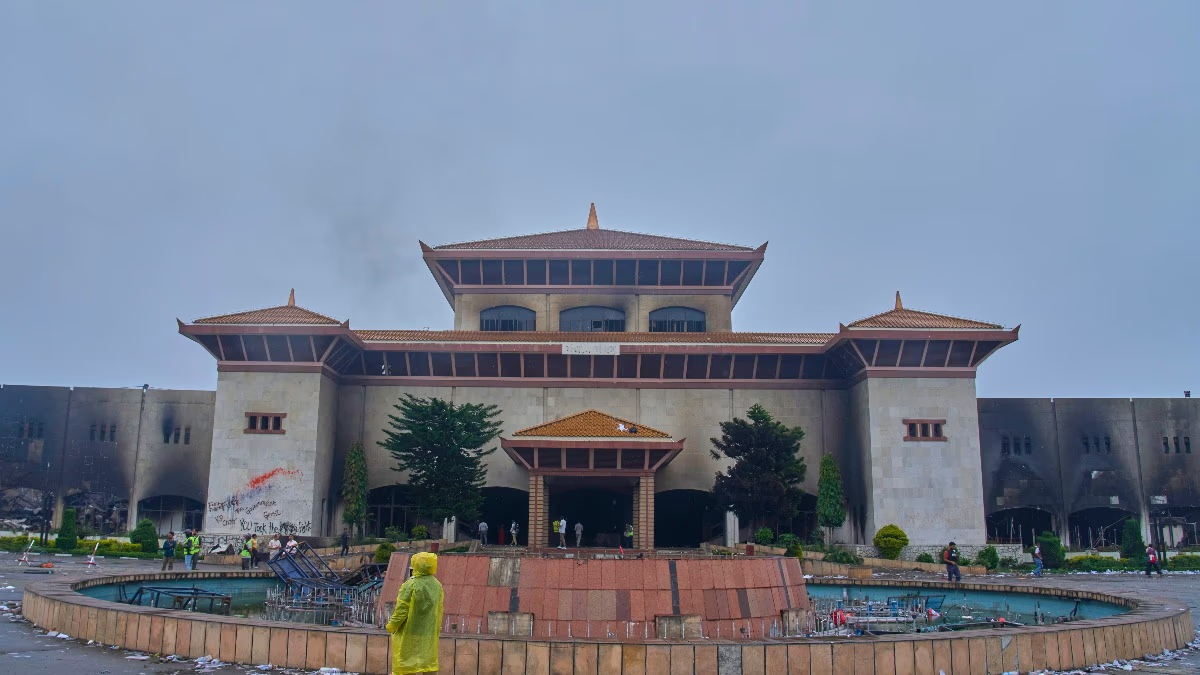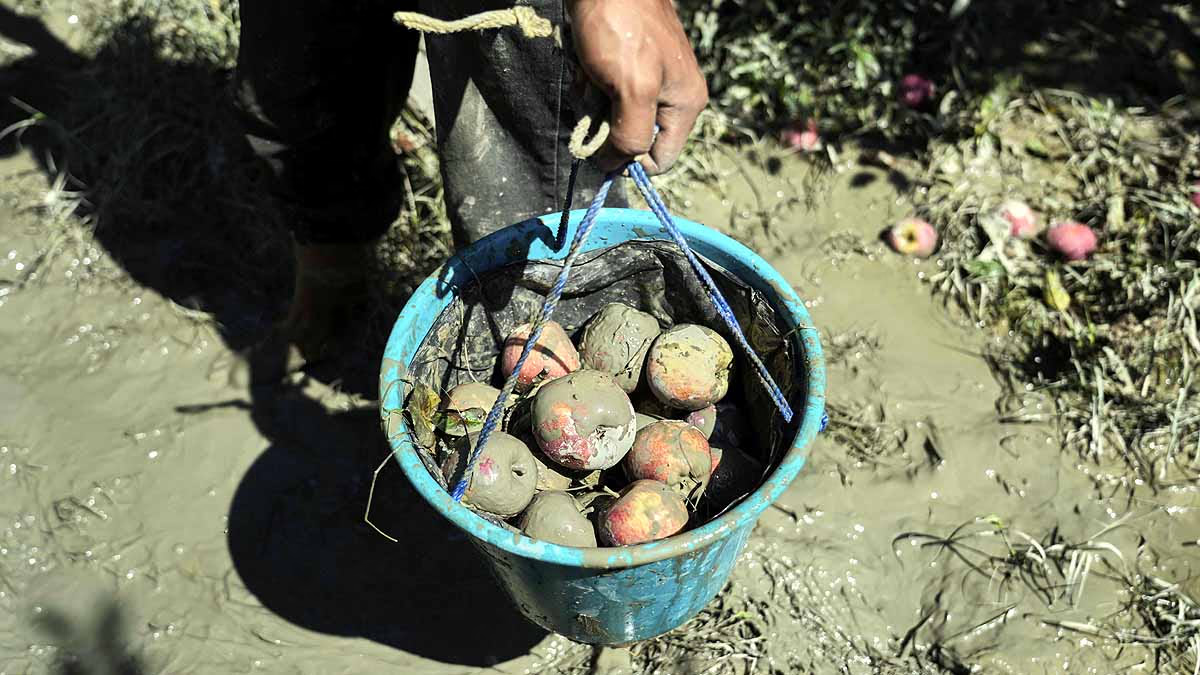
Source: aajtak
The recent floods in the Kashmir Valley have inflicted massive damage on apple producers. In Pulwama, a farmer revealed his anguish by showcasing the mud-soaked apples scattered across his orchard.
Photos: AP
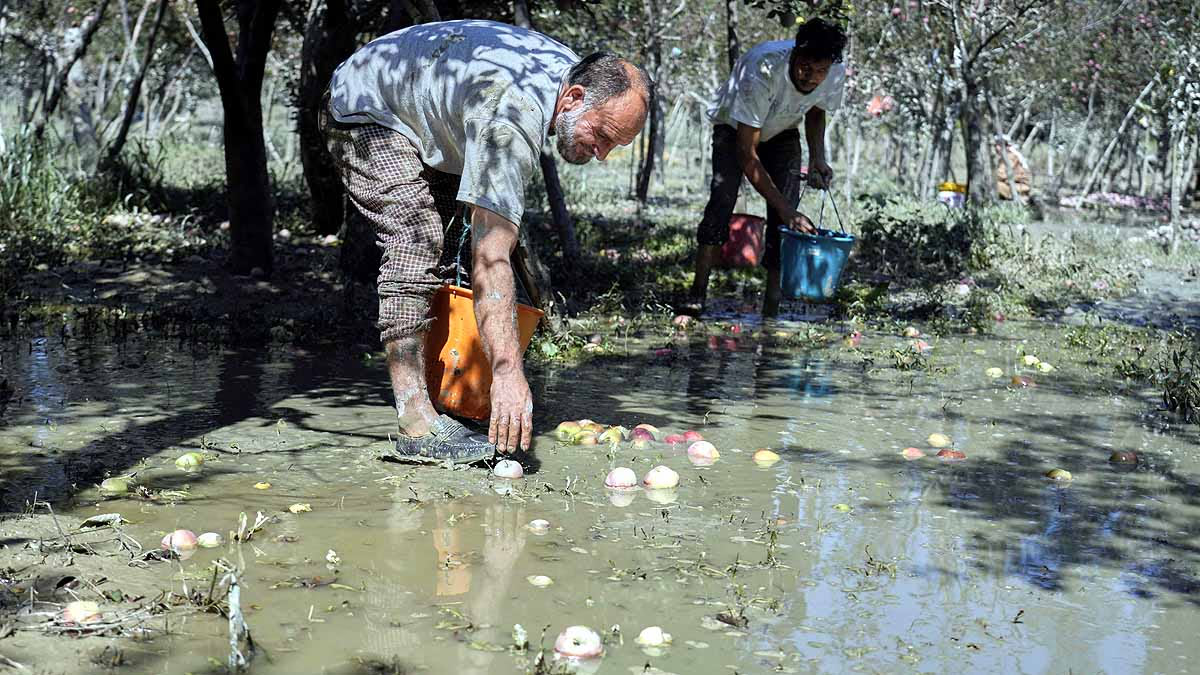
Source: aajtak
This calamity has shaken Kashmir's apple industry, which boasts an annual turnover of INR 12,000 crore. At the end of August 2025, heavy rains and cloudbursts elevated the Jhelum River's water level dramatically.
Photos: AP
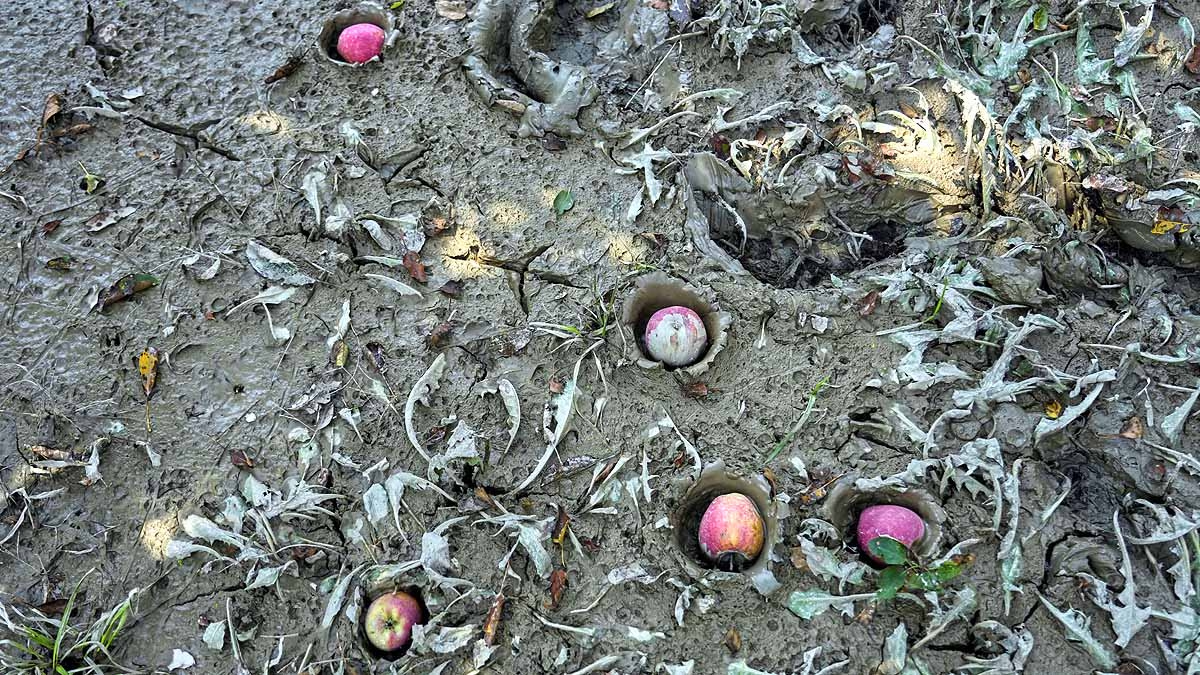
Source: aajtak
Districts like Pulwama, Shopian, Kulgam, and Anantnag in South Kashmir experienced widespread flooding, submerging thousands of acres of apple orchards. The crops, ready for harvest, were swept from the trees, leaving the apples mud-crusted and spoiled.
Photos: AP
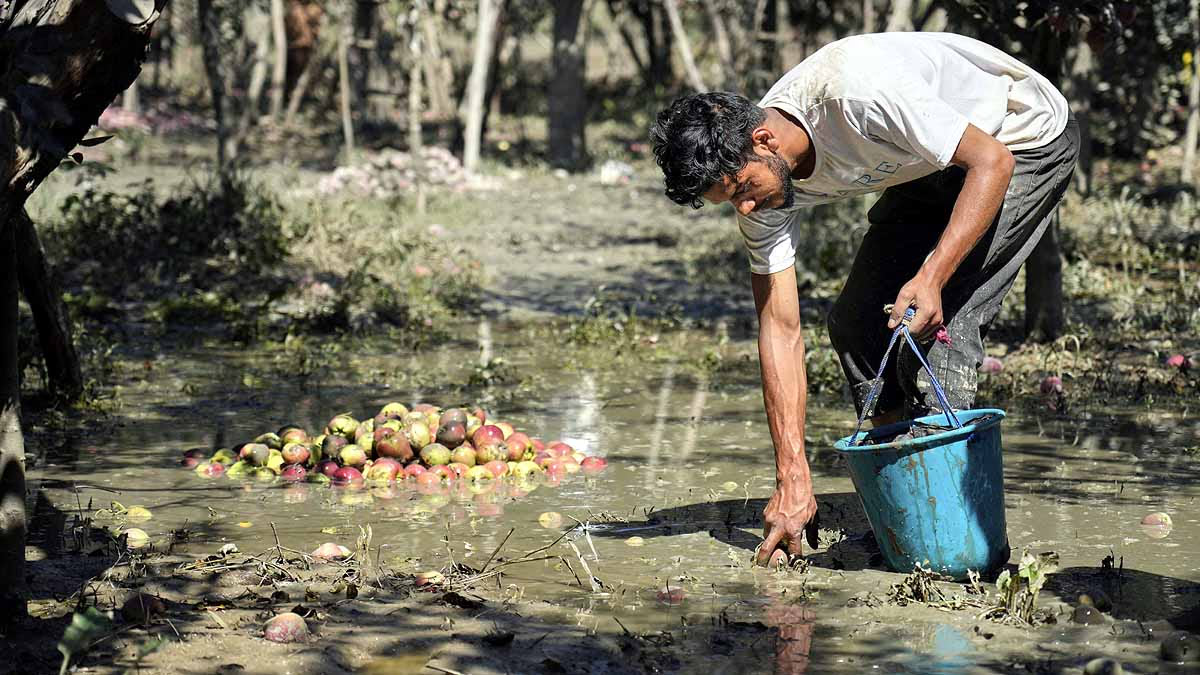
Source: aajtak
Shahid Ahmed, a farmer from Pulwama, shared, "My family relies on our apple orchards, but the flood has destroyed everything." Displaying the muddy apples in his orchard, Shahid conveyed his heartache. Over 70% of the crops in Pulwama and Kulgam have been lost.
Photos: AP
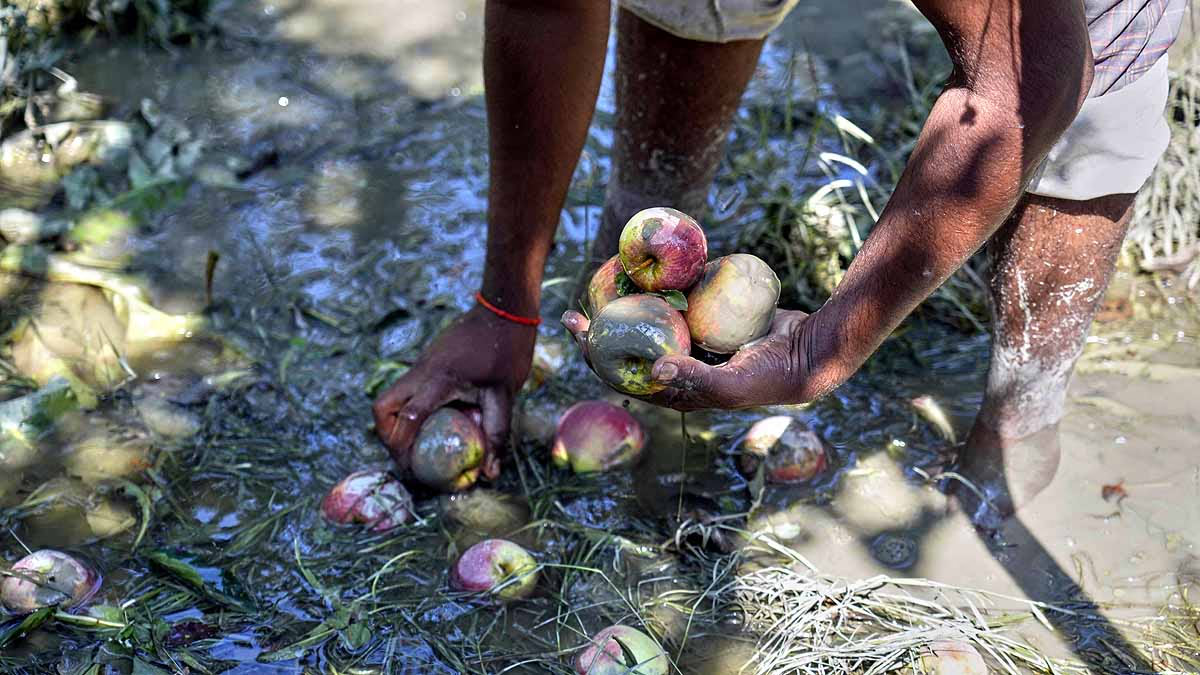
Source: aajtak
The trees were inundated, the apples rotted, and many trees toppled over, resulting in losses estimated between INR 600-700 crore. Landslides on the Jammu-Srinagar highway stranded trucks, halting the distribution of the harvest. Farmers have been left dumping apples on the roadside.
Photos: AP
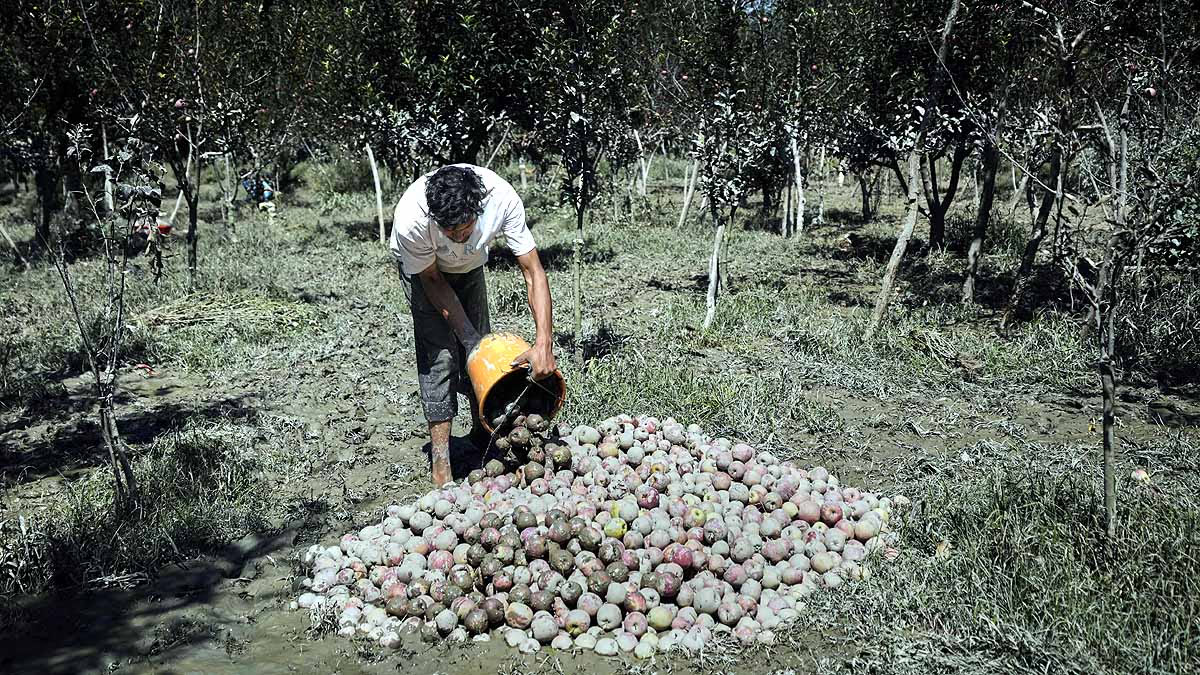
Source: aajtak
Kashmir's apple industry, renowned globally for producing 2.2 to 2.4 million metric tons of apples annually and employing 2.3 million people, faces a significant threat. The floods have obliterated a year's worth of labor. Farmer Iqbal Ahmed from Pulwama stated, "The government talks about insurance and schemes, but in disasters, we're left on our own."
Photos: AP
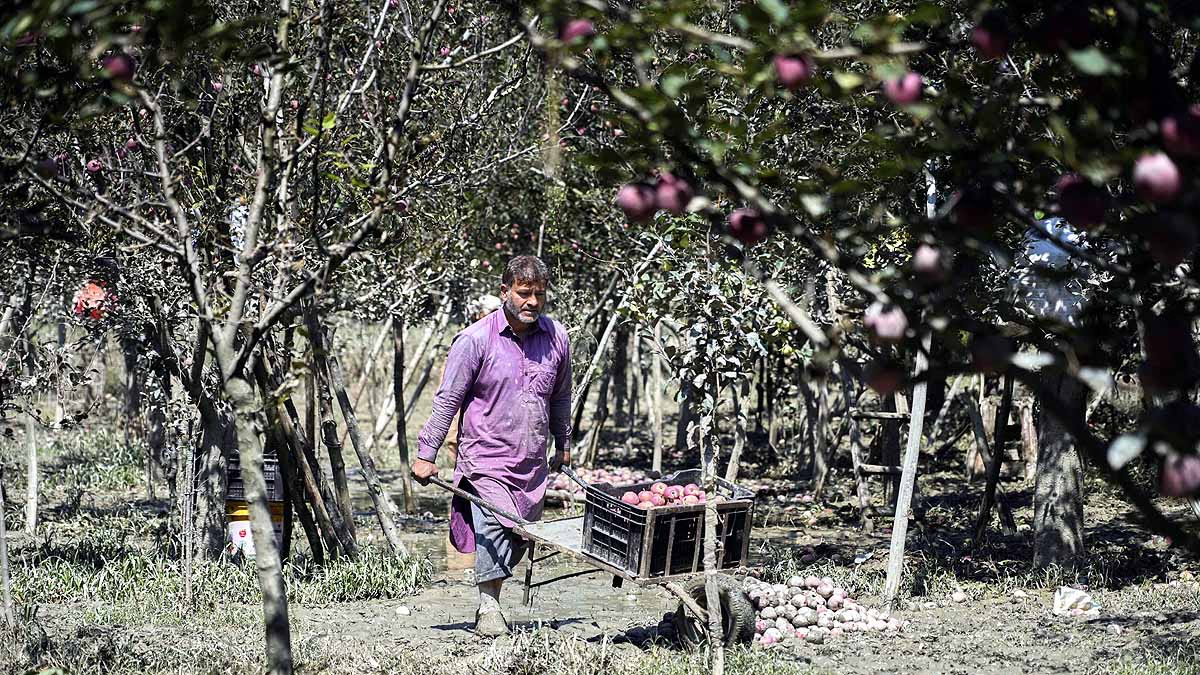
Source: aajtak
Shopian, known as the 'Apple Bowl,' was hit hardest. The government has promised compensation similar to the 2014 floods, yet farmers lament that aid rarely reaches small orchard owners. The crop destruction could exacerbate food insecurity.
Photos: AP
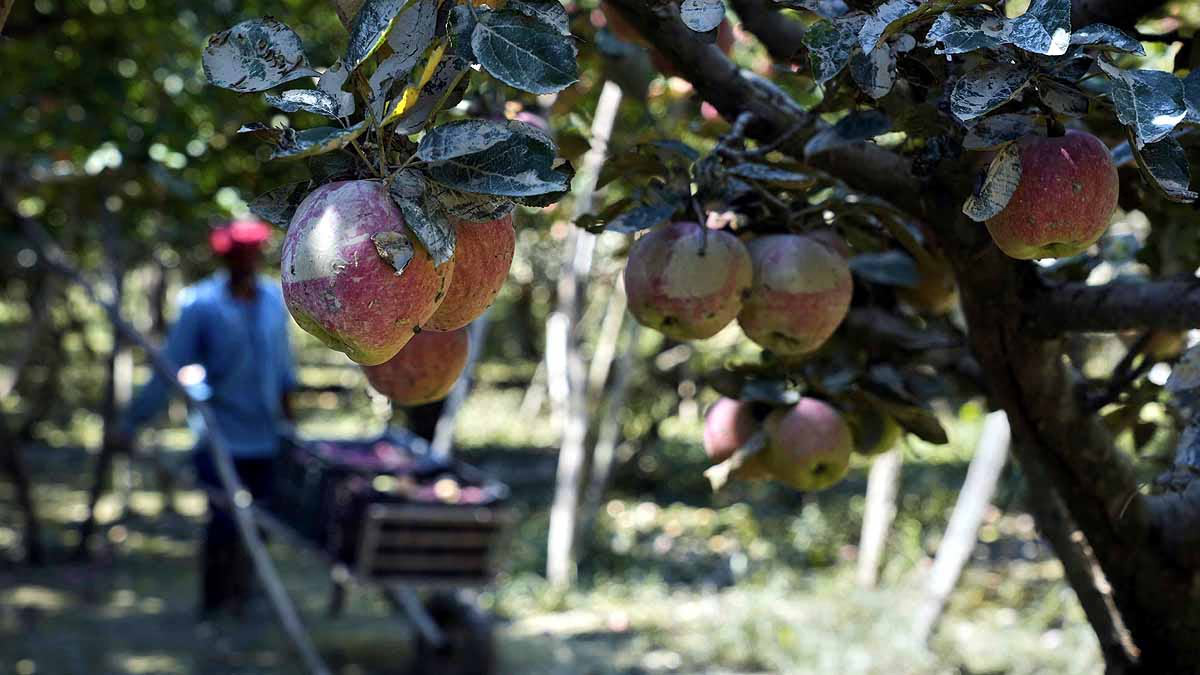
Source: aajtak
Landslides on highways trapped trucks, leading to apple shortages in Delhi and Mumbai markets. Although the railway initiated parcel services to Delhi, the measure hasn't sufficed. The floods, caused by heavy rains and cloudbursts at the end of August 2025, triggered the Jhelum River to surge above the 27-feet mark, leading to rivers overflowing in Anantnag and Pulwama.
Photos: AP
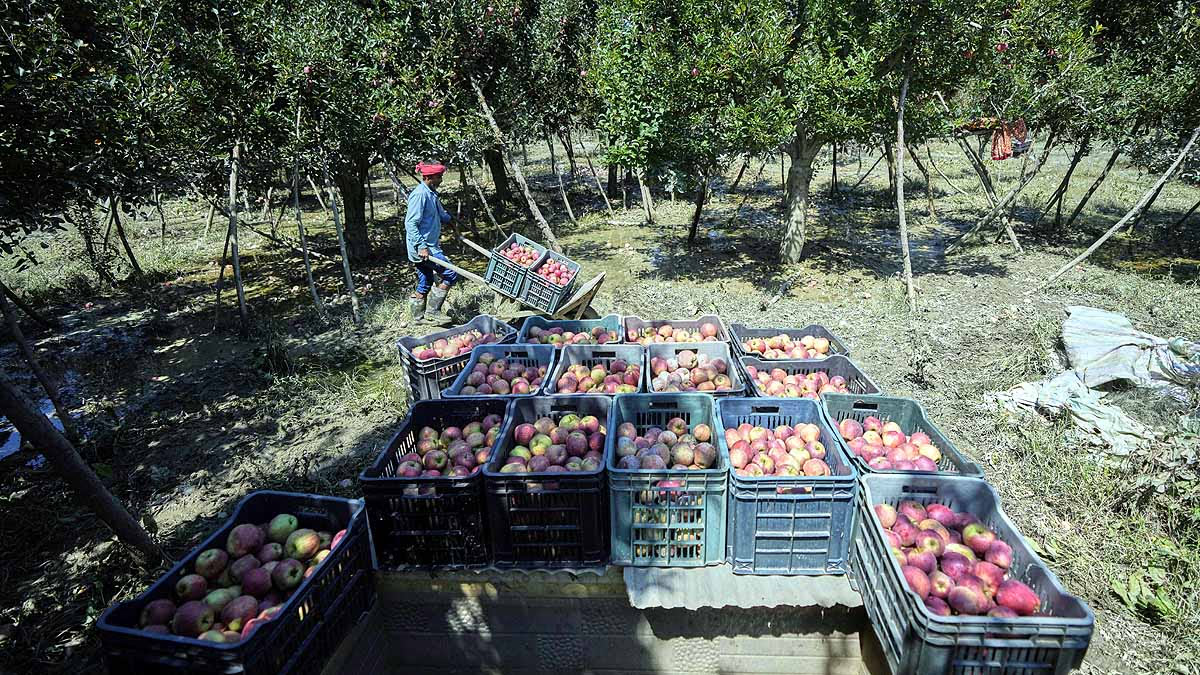
Source: aajtak
Such incidents are increasing due to climate change. Muzaffar Ahmed, a farmer, shared, "80-90% of our rice and apples have been destroyed." The government should focus on orchard repair, insurance, and improving highways. Farmers are now discarding apples roadside as prices plummet—a harsh economic blow to Kashmir.
Photos: AP
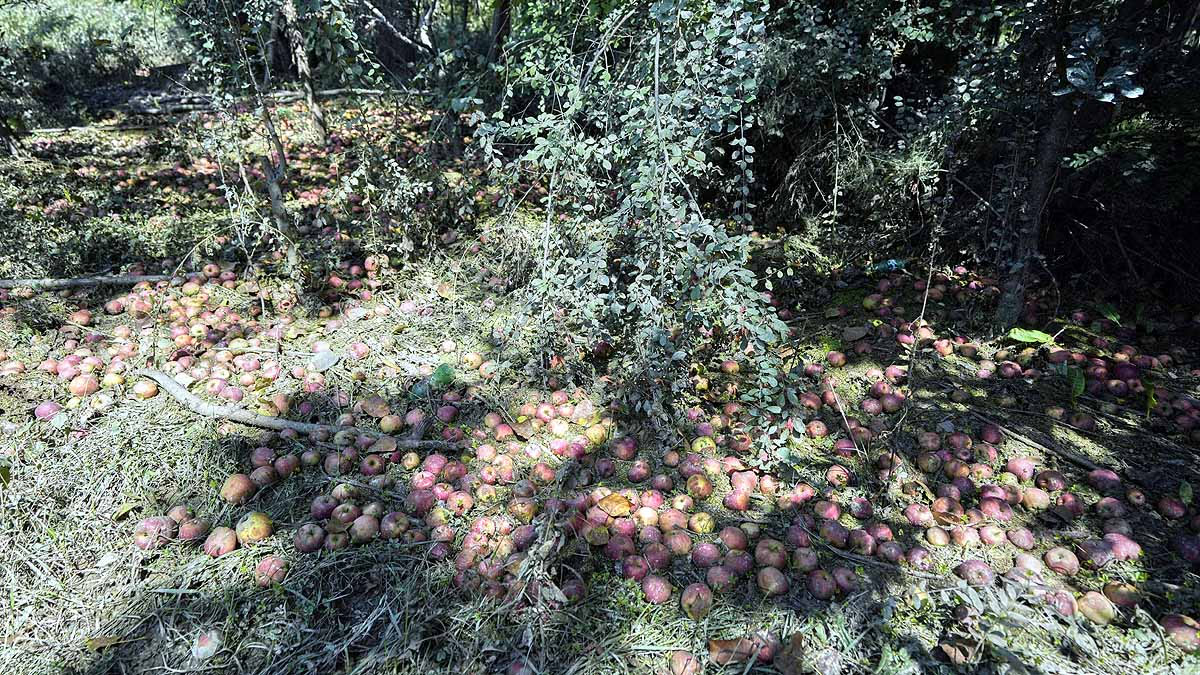
Source: aajtak
The sight of a Pulwama farmer with mud-covered apples symbolizes the plight of Kashmir's apple industry. The floods have ravaged thousands of acres, leading to losses between INR 600-700 crore. The government must promptly provide compensation and relief.




